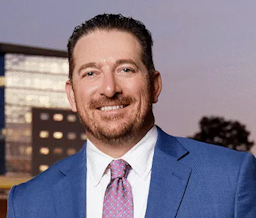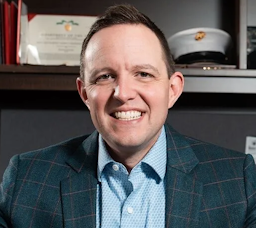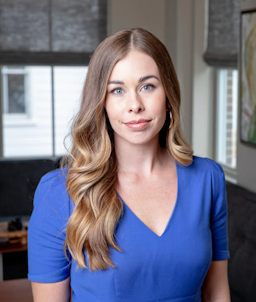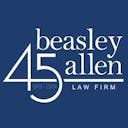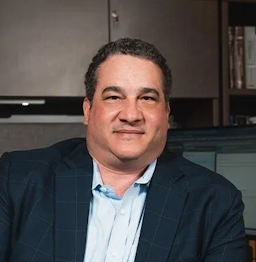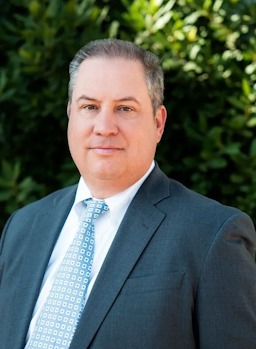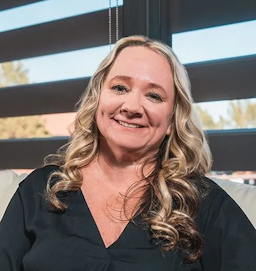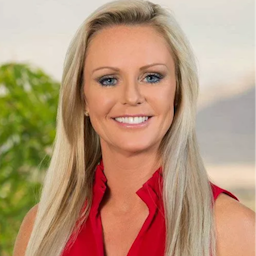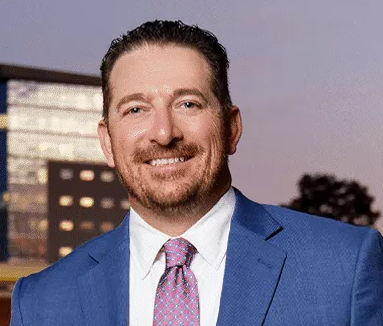Sean Claggett
Claggett & Sykes
I was born in Twin Falls, Idaho, and moved to Boise, Idaho when I was three years old. I lived in Boise until the end of third grade. I then moved to Las Vegas. I attended 8 different schools from 1st-12th grade. I played junior college baseball in California. I finished my bachelor's degree at UNLV. Just before I graduated, I married my high school sweetheart, Lou, and we have been happily married for 22 years. I attended UNLV Boyd School of Law and graduated in 2003. I started my own law firm, Sean K. Claggett & Associates, on January 1, 2005, with a single employee. My firm has changed names two times, the first was Claggett, Hays & Sykes and the second and final change was to its current name, Claggett & Sykes. Today our firm has over 55 employees which includes 22 lawyers. I love baseball and golf, and as I write this bio I am at St. Andrews enjoying day 1 of the 150th Open.
Intake and Pre-Lit Workup
- Your Firm's Mission: What type of firm do you want to be?
- Who are we? (who were we?)
- Defining your firm’s pre-litigation role
- You pre-litigation should be your early starting line for your litigation cases and litigation quicksand.
- Case Selection Criteria
- Evaluating risk and value
- Seeing the case at each stage of the process, from day 1 to the end of a trial
Managing the Case and Putting Constant Pressure on the Defense
Drafting Complaints
- Frame the Case with Purpose. Not just about Notice.
- Know your audience.
- Name All Parties.
- Separate Claims.
- Plead All Damages.
- Plead Punitive Damages.
- Be aware of specific rules for wrongful death cases.
- Tell the Story from the Defendant’s wrongful conduct.
- Plead jurisdictional facts to avoid removal.
- Uses at Trial.
- Don’t let it sit. File early.
Draft Jury Instructions and Written Discovery
- Figure out what you have to prove.
- Draft RPDs first and before the discovery period begins so they are ready to go the moment you can send discovery.
- Save the Rogs and Admissions. Throw darts with these.
Review Initial Disclosures and immediately determine what you did not get.
- Don’t sit on it and be lazy.
- Did you get insurance policies? All of them?
- Did you get a list of witnesses who can be deposed?
- Did you get color photos?
- Did you get actual documents rather than BS.
Send Letter regarding Disclosures and insurance policies. (always incomplete).
Send Written Discovery First Day Possible.
- Ask for policies and procedures.
- Add another request for insurance.
- Ask for all video and audio.
- Ask for the Claims File.
- Ask for Prior Incidents.
- Work out any issues with a protective order. If they want one, you need a draft before discovery begins because you are likely to challenge it. Don’t just sign them. Make them file a motion. Work this out as early as possible.
Review Discovery Upon Receipt
- Review Responses.
- Did you get a privilege log? Does it comply with applicable law?
- Did you get complete responses?
- Did you get color photos?
- Did you get video?
- Are the objections boilerplate? Always will be. This is not permitted in most or all jurisdictions.
- Defense attorneys are taught to not respond and lazy lawyers tolerate it.
Prepare Good Faith Letter or Schedule Call.
- Some states require a letter. If so, do it within days of receipt of responses. Good practice to do one anyway.
- Send letter and schedule a conference. Don’t leave it open ended. You give them 3 dates. If they do not respond, you call on all 3 of those dates.
- Have your good faith conference and give a short, but reasonable time for a supplement.
File your Motion to Compel.
- You will be filing these. It’s not if, but when. Get the Court on notice early about Defense games.
- Get an Order for more documents.
- If the production is still not satisfactory, then prepare a motion for an order to show cause.
Building Your Pre-Lit and Lit Systems Part 2
- Trial work means fewer cases (can't have hundreds of cases per attorney in lit)
- You can make more money by saying no, but you have to be patient
- Focusing on what matters in lit - what moves cases forward and gets full value on cases
- What are you incentivizing with your pay structure? Are you inadvertently incentivizing people to settle cases instead of taking cases to trial and working them up to get full value?
- Compensation and bonus structure for lit teams
- Go over the litigation system and timeline we built
Litigation and Trial Workdays Part 2
Just as it is in the dictionary, so it is in trial: winning never precedes preparation. That said, the strategies used to prepare for trial significantly impact the level of success realized at trial. Each and every trial that we prepare for at the Claggett & Sykes Law Firm goes through the same tried and true process. It is a process of building a solid, unshakable foundation from all of the many bricks that were hurled at us throughout litigation.
Throughout the seminars, Litigation and Trial Workdays Parts 1 & 2, we will discuss the process we have mastered to generate success at trial. We will discuss the methods we use to distill the essential components of the litigation morass into a winning trial strategy.
Mediation and Post-Trial Settlement Conferences
Settle before or after the entry of judgment?
- Does the defendant want to avoid the entry of judgment? Put a time limit on holding the judgment.
- Would the entry of judgment with the full value put leverage on the decision-makers?
Do you have all the insurance policies?
- Was notice given to all insurance carriers?
- Do you need to consult with an insurance coverage attorney?
Have you discovered the defendant’s other assets?
- Do you need to do post-judgment discovery?
- Should you notice a judgment debtor examination?
Should you demand a supersedeas bond?
- Will a bond requirement compel the defendant to make a reasonable settlement offer?
- Is bankruptcy a concern? Should you hire bankruptcy counsel?
Is there some legal issue holding up settlement?
- Do you need to defeat the defendant’s post-trial motions, e.g., motion for new trial, judgment as a matter of law, alter or amend judgment?
- Would an award of attorney fees and costs place leverage on the decisionmakers?
- Is there any post-trial motion that you can file? (challenge adverse interlocutory orders or directed verdict rulings
- Do you have the basis to file a cross-appeal?
Does the defendant have a bad faith claim against its own insurance carrier that can be used as a bargaining chip?
- Did the defendant have independent counsel during trial?
- Should the independent counsel actually file the bad faith lawsuit?
Do you need the help of a mediator?
- If the defendant emphasizes the strength of its appeal, a retired Supreme Court Justice could help.
- Are there factual or insurance issues where a different kind of mediator could assist?
Litigation and Trial Workdays Part 1
Just as it is in the dictionary, so it is in trial: winning never precedes preparation. That said, the strategies used to prepare for trial significantly impact the level of success realized at trial. Each and every trial that we prepare for at the Claggett & Sykes Law Firm goes through the same tried and true process. It is a process of building a solid, unshakable foundation from all of the many bricks that were hurled at us throughout litigation.
Throughout the seminars, Litigation and Trial Workdays Parts 1 & 2, we will discuss the process we have mastered to generate success at trial. We will discuss the methods we use to distill the essential components of the litigation morass into a winning trial strategy.
Trial Prep & Big Data
At Claggett & Sykes a successful system has been created that has resulted in over a billion dollars in verdicts over the past four years. These verdicts were all accurately predicted prior to the trials occurring. Most importantly, these verdicts have been obtained by a variety of lawyers ranging from lawyers with very little trial experience to very experienced trial lawyers. During this course Sean Claggett will share the process that is used at his firm that has been battle tested. You will see the worksheets that are used to organize the facts, timelines, witnesses and alibis of the defense.
Are you ready to revolutionize your approach to litigation and trial law? Our groundbreaking course, "Mastering the Art and Science of Litigation with JuryBall," will empower you to harness the transformative power of big data and scientific methods, taking your legal practice to new heights. Say goodbye to relying solely on intuition and experience, and embrace a data-driven approach that will help you select cases, shape discovery, prepare witnesses, value cases, choose juries, and try cases with unparalleled precision and effectiveness.
Throughout this immersive course, you'll explore cutting-edge technologies and methods for studying cases, gain practical guidance on working with data, and learn from extensive research and real-world experience. You'll dive into key metrics such as win rate, damages, fault, credibility, and more, witnessing firsthand how big data has turned good cases into record-breaking verdicts. From understanding the fundamental paradigms of big data to applying these lessons directly to your cases, you'll gain the knowledge and skills necessary to thrive in the modern legal landscape.
But that's not all – you'll also have the opportunity to analyze a concrete case example where big data transformed a $10 million case into a historic $485 million verdict. By the end of this course, you'll be equipped with the tools and expertise to apply these principles in your own legal practice, ultimately leading to more successful outcomes for your clients. Don't miss this chance to be at the forefront of the legal revolution – enroll in "Mastering the Art and Science of Litigation with JuryBall" today and take your career to the next level!
Building Your Pre-Lit and Lit Systems Part 1
- Difference between trial firms and volume firms
- Using a systems-based approach - Increasing case value by creating a system
- The need to separate pre-lit volume from lit and trial cases
- The role of your pre-lit team (customer service, knowing what your lit teams are looking for, knowing which cases will have to be litigated and working them up properly) - Christian you may cover some of this in your other sessions but I think a little overlap is ok
- What to do with cases that don't settle in pre-lit but aren't the right fit for your lit team
- Compensation for your pre-lit team (how to bonus)
Depositions
Dorothy Clay Sims – Using AI for Depositions
Dorothy Clay Sims will engage students with an interactive presentation on cutting edge strategies for using AI in depositions, particularly expert depositions.
Will Sykes – 30(b)(6) Depositions and Case Strategy: Pressure Points
Will Sykes will provide big picture overview of how to incorporate 30(b)(6) depositions in overall case strategy, to maximize leverage to either force settlements or preserve key corporate representative testimony for trial
Sach Oliver – Depositions are Trial – Advanced Techniques
Sach Oliver will teach advanced deposition techniques from his acclaimed and highly effective “Depositions are Trial” method.
Moderated by: Will Sykes
Getting Appellate Counsel Involved
Case studies where cases went wrong at trial on legal issues
- Inadequate pleading, including punitive damages
- Inadequate orders in limine
- Improper Batson challenges
- Unrecorded bench conferences
- Inadequate offers of proof
- Settling of jury instructions
- Settling of the jury verdict form
- Failure to timely challenge the sufficiency of the defenses.
What does an appellate attorney do prior to trial and during trial?
- Prior to trial.
- Oppose motions to dismiss
- Consult on motions to amend prior to trial.
- Consult or draft summary judgment motions and oppositions.
- Draft motions in limine on legal issues.
- Consult on pretrial orders that are appealable or likely subject to a writ petition.
- Prepare jury instructions.
- Prepare the jury verdict form.
- Prepare trial briefs on legal issues.
During Trial
- Participate in bench conferences
- Provide legal support for evidentiary rulings and objections.
- Assist with offers of proof.
- Prepare additional trial briefs.
- Keep track of additional needed jury instructions
- Settle jury instructions
- Settle the verdict form.
- Oppose the defense motions for directed verdict.
Voir Dire
During the voir dire course you will learn how to develop a theme during voir dire, and how that theme carry overs into the trial. Additionally, you will learn about how to effectively challenge jurors for cause, and what questions Sean has used successfully to get jurors for cause. Finally, you will learn what words and concepts (directly from jury instructions) can be used in voir dire to understand who will be effective for you. Finally, you will learn how Sean uses big data to power his jury selection process and you will get a first hand lesson on the Juryball software that is powered by Big Data.
TLU Live HB Agenda
Track 1
Breakfast
Hosted by
- 9:00a




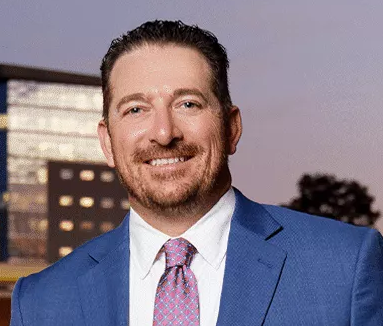 Will Sykes · Dorothy Clay Sims · Sach OliverDepositions
Will Sykes · Dorothy Clay Sims · Sach OliverDepositions Coffee & Snacks
Hosted by
- 10:15a




 Will Sykes · Dorothy Clay Sims · Sach OliverDepositions
Will Sykes · Dorothy Clay Sims · Sach OliverDepositions Coffee & Snacks
Hosted by
- 11:30a




 Will Sykes · Dorothy Clay Sims · Sach OliverDepositions
Will Sykes · Dorothy Clay Sims · Sach OliverDepositions Lunch
Sponsored by
- 2:00p


 Christian Augustin · Sean Claggett Intake and Pre-Lit Workup
Christian Augustin · Sean Claggett Intake and Pre-Lit Workup Coffee & Snacks
Hosted by
- 3:15p


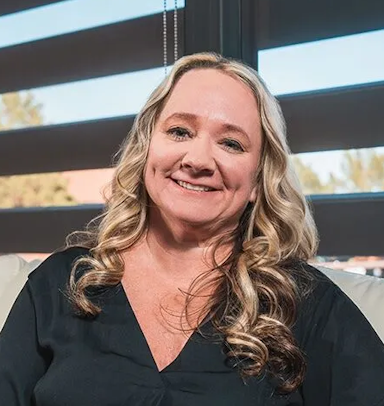

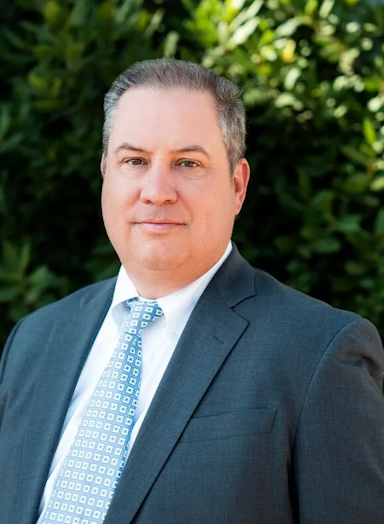
 Shannon Wise · Jennifer Morales · Brian BlankenshipManaging the Case and Putting Constant Pressure on the Defense
Shannon Wise · Jennifer Morales · Brian BlankenshipManaging the Case and Putting Constant Pressure on the Defense Coffee & Snacks
Hosted by
- 4:30p





 Shannon Wise · Jennifer Morales · Brian BlankenshipManaging the Case and Putting Constant Pressure on the Defense
Shannon Wise · Jennifer Morales · Brian BlankenshipManaging the Case and Putting Constant Pressure on the Defense
Track 2
Breakfast
Hosted by
- 9:00a


 Joseph Fried · Dan Ambrose High Performance Presentations
Joseph Fried · Dan Ambrose High Performance Presentations Coffee & Snacks
Hosted by
- 10:15a


 Haytham Faraj · Ted Wacker Overcoming Significant Hurdles on the way to $21.2 Million Verdict
Haytham Faraj · Ted Wacker Overcoming Significant Hurdles on the way to $21.2 Million Verdict Coffee & Snacks
Hosted by
- 11:30a

 Joseph FriedJoe Fried’s Top Tips for Winning Trucking Case
Joseph FriedJoe Fried’s Top Tips for Winning Trucking Case Lunch
Sponsored by
- 2:00p

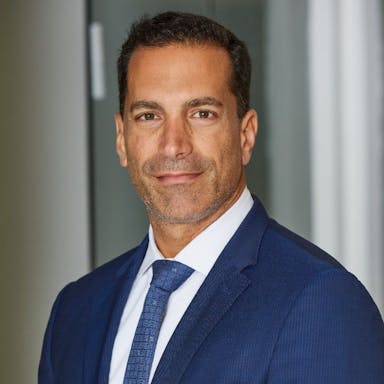 Sagi ShakedMaximizing Your TBI case
Sagi ShakedMaximizing Your TBI case Coffee & Snacks
Hosted by
- 3:15p

 Kurt ZanerHow fun, persuasive writing can lead to eight figure verdicts and settlements
Kurt ZanerHow fun, persuasive writing can lead to eight figure verdicts and settlements Coffee & Snacks
Hosted by
- 4:30p


 Khail Parris · Alex Wheeler Picking a $58,000,000 jury: Using fat words and skinny words for cause
Khail Parris · Alex Wheeler Picking a $58,000,000 jury: Using fat words and skinny words for cause
Track 3
Breakfast
Hosted by
- 9:00a

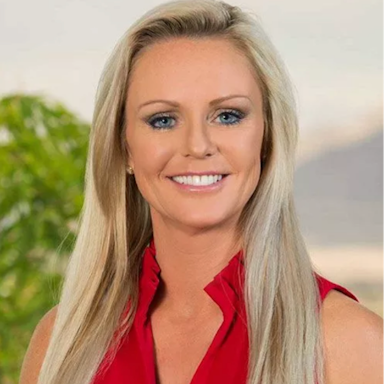 Christian MorrisCross-Examination of Defense Medical Expert
Christian MorrisCross-Examination of Defense Medical Expert Coffee & Snacks
Hosted by
- 10:15a


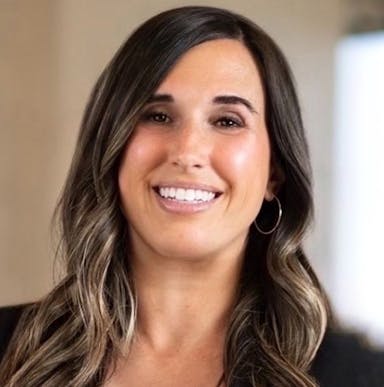 Bruce Broillet · Molly McKibben The Erin Andrews Invasion of Privacy Case: How the $55 Million non-economic Verdict was won
Bruce Broillet · Molly McKibben The Erin Andrews Invasion of Privacy Case: How the $55 Million non-economic Verdict was won Coffee & Snacks
Hosted by
- 11:30a


 Bruce Broillet · Molly McKibben The Erin Andrews Invasion of Privacy Case: How the $55 Million non-economic Verdict was won
Bruce Broillet · Molly McKibben The Erin Andrews Invasion of Privacy Case: How the $55 Million non-economic Verdict was won Lunch
Sponsored by
- 2:00p


 Bruce Broillet · Molly McKibben The Erin Andrews Invasion of Privacy Case: How the $55 Million non-economic Verdict was won
Bruce Broillet · Molly McKibben The Erin Andrews Invasion of Privacy Case: How the $55 Million non-economic Verdict was won Coffee & Snacks
Hosted by
- 3:15p

 Przemek LubeckiThe Mental Game for Trial - Performing Under Pressure
Przemek LubeckiThe Mental Game for Trial - Performing Under Pressure Coffee & Snacks
Hosted by
- 4:30p

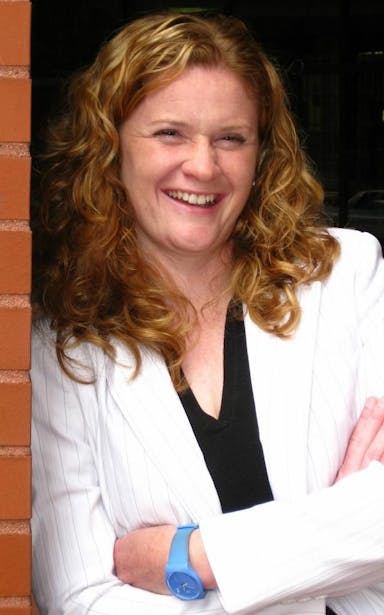 Alicia CampbellHow to Get Your First 8 Figure Verdict
Alicia CampbellHow to Get Your First 8 Figure Verdict
Track 4
Breakfast
Hosted by
- 9:00a



 Phillip Miller · Justin Kahn · Edward CiarimboliDesigning Exhibits - Design Ideas and Techniques
Phillip Miller · Justin Kahn · Edward CiarimboliDesigning Exhibits - Design Ideas and Techniques Coffee & Snacks
Hosted by
- 10:15a



 Phillip Miller · Justin Kahn · Edward CiarimboliDesigning Exhibits - Design Ideas and Techniques
Phillip Miller · Justin Kahn · Edward CiarimboliDesigning Exhibits - Design Ideas and Techniques Coffee & Snacks
Hosted by
- 11:30a



 Phillip Miller · Justin Kahn · Edward CiarimboliDesigning Exhibits - Design Ideas and Techniques
Phillip Miller · Justin Kahn · Edward CiarimboliDesigning Exhibits - Design Ideas and Techniques Lunch
Sponsored by
- 2:00p





 Lloyd Bell · Monte Tynes · Bob ByrneTry your FRKN Case
Lloyd Bell · Monte Tynes · Bob ByrneTry your FRKN Case Coffee & Snacks
Hosted by
- 3:15p

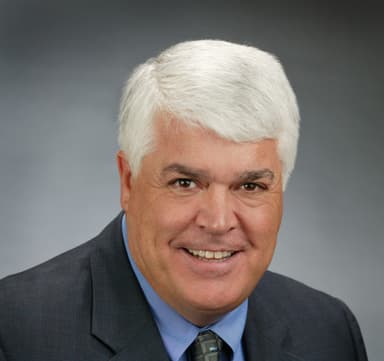 John RomanoNavigating The Minefields Of Valuing Cases
John RomanoNavigating The Minefields Of Valuing Cases Coffee & Snacks
Hosted by
- 4:30p

 Dirk VandeverDirk's Trial Manifesto
Dirk VandeverDirk's Trial Manifesto
Party Sponsor
5:30pm-8:30pm
Barbie Pink & White Party
Hosted by








